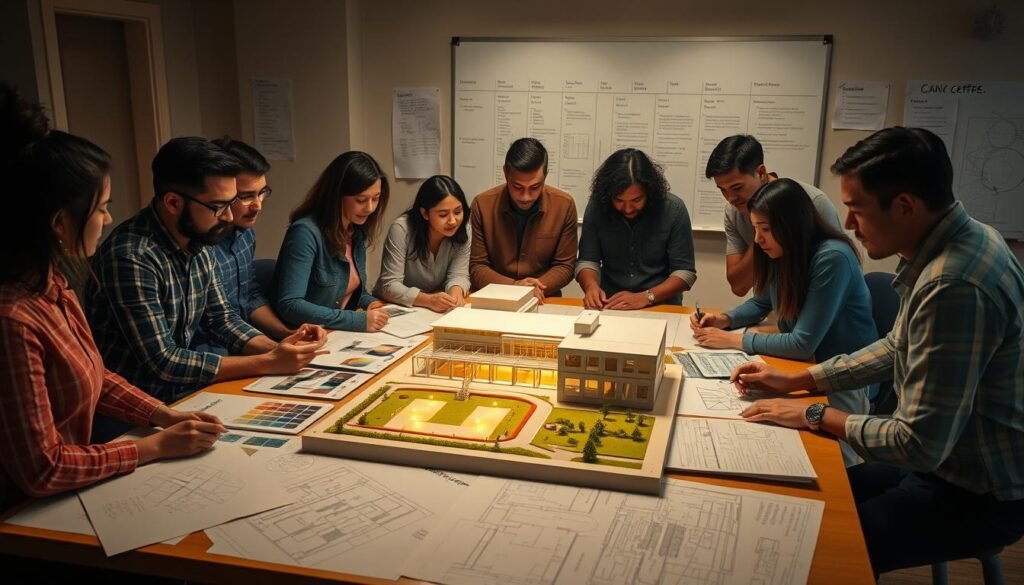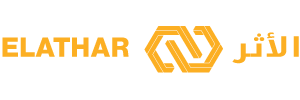Many professionals dream of making a real difference in the world while advancing their skills. They seek opportunities that offer more than just a paycheck.
Structured initiatives bring together talented individuals committed to driving positive transformation. These opportunities combine hands-on work with strategic projects addressing complex challenges.
Participants develop specialized expertise while contributing to meaningful progress. They gain valuable experience working with leading organizations in major cities.
These positions typically offer comprehensive benefits, making them accessible to diverse candidates. The model creates lasting change through both immediate interventions and long-term systemic improvements.
Key Takeaways
- Structured initiatives create meaningful change across various sectors
- These opportunities combine direct service with strategic project work
- Participants gain hands-on experience with leading organizations
- Comprehensive benefits make these positions accessible to diverse candidates
- Both immediate community interventions and long-term systemic change occur
- Professionals develop specialized expertise while contributing to progress
- These experiences often serve as career accelerators for dedicated individuals
Understanding Fellowship Programs and Their Social Mission
These initiatives bring together dedicated individuals to tackle important issues. They focus on building capacity while creating meaningful progress.
Defining Social Impact Fellowships
Structured initiatives develop leadership while addressing complex challenges. They combine hands-on learning with real-world application.
Participants gain valuable tools and skills through immersive experiences. This approach creates both personal growth and community benefits.
These opportunities often last for a full year or multiple years. They connect emerging leaders with established organizations across various sectors.
The Evolution of Fellowship Models
Traditional formats have expanded to include hybrid and executive options. Modern designs emphasize both individual development and collective outcomes.
Programs now feature partnerships between academic institutions, nonprofits, and government agencies. This cross-sector collaboration enhances their effectiveness.
Duration options range from intensive short-term experiences to comprehensive multi-year engagements. The evolution reflects growing recognition of diverse learning needs.
Contemporary models measure impact through both leadership development and community outcomes. This dual focus ensures sustainable progress.
How Fellowship Programs Create Measurable Social Change
Measurable progress emerges when structured engagements address needs at both grassroots and systemic levels. These comprehensive approaches generate documented outcomes that benefit communities while developing exceptional leaders.
Direct Community Impact Initiatives
Hands-on projects create immediate improvements in local areas. Participants implement health interventions, educational support, and development work.
These efforts address pressing challenges facing neighborhoods and populations. The Berkeley initiative collaborates with faculty and partners to shape effective strategies.
Community outcome measurements track health indicators and capacity building. This documentation ensures accountability and continuous improvement.
Systems-Level Policy Influence
Strategic work extends beyond immediate interventions to create lasting transformation. Participants contribute to policy development and organizational change.
This approach affects entire sectors through innovative frameworks and methodologies. The Mountaintop engagement demonstrates significant results with 50% revenue growth.
Both immediate and long-term measurements evaluate effectiveness. This dual focus ensures sustainable progress across communities and organizations.
Berkeley Public Health Impact Fellows: A Case Study in Health Leadership
University-based initiatives create powerful platforms for health transformation. The Berkeley model brings together accomplished professionals to address critical community needs.
Program Overview and Mission
This initiative centers on bridging knowledge into actionable solutions. It operates on the belief that academic institutions exist to create positive change.
Participants engage in deep reflection and innovative thinking. They leverage their diverse backgrounds to tackle pressing health challenges.
The approach combines connection opportunities with strategic development work. This creates meaningful progress through collaborative effort.
2025-2026 Cohort Diversity and Expertise
The current group demonstrates exceptional professional diversity. Leaders come from AI healthcare, public health policy, and Medicaid innovation.
Additional expertise includes violence prevention and mental health financing. Child development frameworks and health equity strategies are also represented.
Each member brings specific skills to address complex challenges. Digital health innovation and public health transformation are key focus areas.
The collective experience spans multiple sectors and organizational types. This diversity strengthens the overall capacity for impact.
Mountaintop Social Impact Executive Fellowship: Global Leadership Development
Seasoned professionals guiding mission-driven organizations benefit from advanced leadership frameworks. This premier initiative offers transformative growth for executives navigating complex challenges.
The model combines academic excellence with real-world application. Participants develop strategic capacity while building lasting professional connections.
Program Structure and Harvard Partnership
This one-year hybrid experience blends digital learning with intensive residential components. The design accommodates busy executives while ensuring deep engagement.
Participants begin with online preparation before attending the two-week Leadership Institute. This immersive event occurs at Harvard’s Edmond and Lily Safra Center for Ethics.
The Harvard collaboration provides access to distinguished faculty from multiple schools. World-renowned experts like Nobel Laureate Shirin Ebadi contribute to the curriculum.
Mountaintop has established eight executive initiatives across seventeen countries. These efforts support organizational leaders through turbulent environments.
Executive-Level Curriculum Focus
The educational approach centers on adaptive leadership and systems transformation. Executives learn to make strategic decisions under significant pressure.
Operational excellence frameworks help organizations achieve sustainable results. The curriculum addresses trust-building during crisis situations.
Participants gain practical tools for resource-constrained environments. This prepares them for complex challenges facing their communities.
The experience includes mentorship, peer exchanges, and executive coaching. These elements create comprehensive professional development opportunities.
Professional Development Through Immersive Fellowship Experiences
Emerging leaders gain transformative growth through structured learning opportunities. These experiences build practical abilities for addressing real-world issues.
Participants develop specialized expertise while working on meaningful projects. They acquire tools and strategies from top faculty and experienced mentors.
Skill Building for Complex Challenges
Hands-on learning focuses on technical competencies and strategic thinking. Participants master operational excellence and financial management.
They develop frameworks for team culture and fundraising strategies. These skills directly apply to their current roles and future ambitions.
Adaptive leadership labs strengthen negotiation and decision-making capabilities. This prepares professionals for high-pressure situations.
The Mountaintop initiative features Harvard faculty-led sessions. These build systems thinking and innovation approaches.
Leadership Capacity Strengthening
Executive coaching and peer learning environments enhance leadership abilities. Participants learn to inspire teams and sustain organizations.
They gain clarity for acting during uncertain times and transitions. Regular retreats and workshops provide concentrated development opportunities.
Mentoring relationships offer personalized guidance and support. This comprehensive approach creates more effective change agents.
Professionals leave with enhanced capabilities for their communities and sectors. They become better equipped to drive meaningful progress.
Building Powerful Networks for Sustainable Impact
Strong professional relationships form the backbone of lasting change. These connections extend far beyond the initial learning period.
Participants gain access to diverse thinkers and experienced leaders. This creates ongoing opportunities for collaboration and growth.
Peer Cohort Connections
Immediate bonds form among participants facing similar challenges. These relationships provide valuable support during the experience.
Mountaintop creates a global network spanning 175+ countries. This offers lifelong connection opportunities across borders.
Peer learning enhances leadership development through shared experiences. Collaborative problem-solving becomes a natural outcome.
Alumni Network Advantages
Graduates maintain access to resources and special events. They connect with new cohort members across different years.
The Berkeley model demonstrates strong university-community partnerships. Faculty and student connections enrich the learning journey.
Alumni networks facilitate knowledge exchange and resource sharing. These relationships often lead to new positions and projects.
Ongoing support systems strengthen organizational capacity over time. This creates sustainable progress across multiple communities.
Fellowship Program Structures and Timelines
Different formats exist to accommodate various professional needs and schedules. These designs balance intensive learning with practical application.
Typical Program Duration Options
Time commitments range from several months to multiple years. Shorter formats offer intensive experiences for busy professionals.
Longer engagements provide deeper immersion and skill building. Two-year positions often include comprehensive benefits and salaries.
The Berkeley model operates on an annual cycle with new groups each year. This creates consistent opportunities for emerging leaders.
Mountaintop’s one-year hybrid approach combines online and in-person elements. This design accommodates executives maintaining their current roles.
Residential vs. Hybrid Models
Traditional residential formats provide full immersion in learning communities. Participants experience intensive connection and growth.
These models require significant time away from work and family. They offer deep engagement with faculty and peers.
Hybrid designs combine digital learning with residential components. The Mountaintop initiative includes online preparation followed by a two-week institute.
This approach provides flexibility for working professionals. It maintains high-quality education while accommodating busy schedules.
Both models create valuable network building and leadership development. The choice depends on individual circumstances and learning preferences.
Curriculum Components That Drive Social Innovation
Thoughtfully designed learning experiences equip professionals with multidimensional capabilities for creating meaningful progress. These educational frameworks combine theoretical knowledge with practical application.
Comprehensive training addresses both immediate challenges and long-term transformation needs. Participants gain tools for navigating complex environments effectively.
Adaptive Leadership Training
This training prepares individuals to lead through uncertainty and rapid change. It focuses on developing flexibility and resilience in challenging situations.
Harvard faculty-led labs strengthen decision-making capabilities under pressure. Participants learn innovative problem-solving approaches for real-world scenarios.
These skills directly apply to high-stakes environments facing communities today. The training builds confidence for making strategic choices during crises.
Systems Change Frameworks
These frameworks provide understanding of interconnected societal structures. They help professionals develop comprehensive intervention strategies.
Participants learn to identify leverage points for maximum effect. This approach addresses root causes rather than surface symptoms.
The training includes theories of change and movement building techniques. These tools enable sustainable progress across multiple sectors.
Operational excellence and financial management components strengthen organizational capacity. Team culture development and leader wellbeing receive focused attention.
Fundraising strategies and scaling methodologies support venture growth. Trust-building during crisis situations becomes a practical skill.
Evaluation methods ensure continuous learning and improvement. Strategic storytelling enhances communication effectiveness.
Expert breakout sessions deepen knowledge in specialized areas. This comprehensive approach creates well-equipped change agents.
Mentorship Opportunities in Fellowship Programs
One-on-one mentorship creates powerful acceleration in professional development. These relationships provide personalized guidance throughout the learning journey.
Participants gain access to seasoned executives and academic experts. This combination offers both practical wisdom and theoretical frameworks.
Executive Mentor Access
The Mountaintop initiative features dedicated Mentor Office Hours. Participants connect with top business leaders at any time during their experience.
These relationships provide practical advice about organizational leadership. Senior mentors share strategic decision-making approaches.
Executive guidance continues beyond the formal period. This creates long-term professional support networks.
Faculty Guidance and Support
Academic institutions provide deep expertise through faculty connections. Harvard Business School and Kennedy School professors contribute directly.
These relationships offer research insights and scholarly resources. Theoretical frameworks inform practical work in communities.
The Berkeley model demonstrates strong university partnerships. Faculty collaboration enhances the overall learning experience.
Both executive and academic mentors accelerate professional growth. They help navigate complex challenges effectively.
Real-World Project Implementation
Hands-on work forms the heart of transformative learning experiences. Participants apply classroom knowledge to actual situations facing communities.
This approach bridges academic theory with practical application. It creates immediate value while building professional capabilities.
Community Development Initiatives
Local engagement allows professionals to address pressing neighborhood needs. They work directly with residents to create sustainable solutions.
These efforts might include health outreach or educational support. Economic development and environmental projects also receive attention.
Participants gain deep understanding of local challenges and opportunities. This hands-on work builds practical skills for lasting careers.
Strategic Organizational Projects
Internal improvements help institutions achieve greater effectiveness. Professionals focus on operational excellence and program development.
They might design new initiatives or enhance existing services. Impact measurement systems and strategic planning receive special attention.
This work strengthens host organizations while developing leadership capacity. The Berkeley model demonstrates successful collaboration with various partners.
Participants shape strategy and mentor emerging changemakers. Their contributions create lasting value beyond the program year.
Career Advancement Through Fellowship Programs Social Impact
Structured learning experiences create powerful career acceleration for dedicated professionals. These opportunities provide comprehensive development that transforms professional trajectories.
Professional Pathway Transformation
Participants gain specialized abilities through immersive training. They develop new perspectives that redirect their career direction.
Mountaintop reports 100% of participants experience significant leadership growth. This transformation occurs through skill building and network expansion.
Recent cohorts show remarkable organizational growth. Ventures led by participants achieved 50% revenue increases and 46% staff expansion.
These experiences often lead to promotions or entrepreneurial ventures. Professionals move vertically within organizations or laterally across sectors.
Sector Leadership Positions
Graduates frequently transition into executive roles with greater responsibility. They become directors, policy leaders, and organizational innovators.
The Berkeley initiative mentors emerging changemakers for future leadership. This creates strong pipelines for the entire social sector.
Career transformation combines capability development with increased visibility. Professionals gain credibility through their learning experience.
Leadership positions offer expanded influence and impact potential. These roles strengthen communities and organizations through innovative approaches.
Application Process and Selection Criteria
The path to joining these transformative experiences begins with a comprehensive application. Understanding the selection framework helps candidates present their best qualifications.
Competitive initiatives seek individuals with proven dedication to positive change. They value diverse backgrounds and innovative approaches to complex challenges.
Competitive Application Requirements
Strong candidates demonstrate significant professional experience and leadership potential. Applications typically include detailed essays, recommendations, and achievement documentation.
Selection committees look for alignment with program values and mission. They seek evidence of commitment to community growth and organizational development.
Most processes require articulating a clear vision for social change. Candidates should highlight specific skills and strategies for addressing pressing needs.
Successful applications showcase both past accomplishments and future potential. They connect personal growth goals with broader sector transformation.
Selection Timeline and Process
The Mountaintop initiative follows a specific annual schedule. Applications close December 14, 2025, with interviews conducted December 2025 through January 2026.
The program year runs from July 2026 to June 2027. This timeline allows selected participants to plan their professional commitments.
Selection involves multiple review stages with various evaluators. Committees consider professional background, geographic diversity, and demographic representation.
Both individual applicants and employer-sponsored candidates are welcome. The program particularly encourages women leaders to apply.
Cohort sizes remain intentionally small to ensure quality connections. This approach creates powerful learning networks among participants.
Understanding this competitive landscape helps candidates prepare effectively. It allows them to highlight their unique qualifications and experiences.
Financial Considerations and Support Options
Financial planning represents a crucial component when considering transformative professional development opportunities. Understanding cost structures helps candidates make informed decisions about their participation.
Investment requirements vary significantly across different initiatives. Some opportunities offer full funding while others require substantial personal contribution.
Tuition Structures and Fees
The Mountaintop initiative charges $4,000 USD for comprehensive participation. This amount covers all educational components throughout the year.
Payment occurs in two installments for convenience. The fee excludes accommodation, meals, flights, and visa expenses for the residential component.
Participants typically utilize multiple funding sources. These include employer sponsorship, foundation partners, or personal investment.
The experience provides valuable assistance with travel planning. Visa application guidance and interview preparation support are available.
Employer Sponsorship Opportunities
Many professionals secure funding through their organizations. Employer support often comes from professional development budgets.
Corporate social responsibility funds represent another potential source. Demonstrating return on investment helps secure organizational backing.
Successful sponsorship proposals highlight leadership development benefits. They connect program participation with enhanced organizational capacity.
Some candidates combine employer support with external scholarships. This approach reduces personal financial burden significantly.
Financial planning should include potential income reduction during the experience. Comprehensive budgeting ensures smooth participation throughout the year.
Measuring the Long-Term Impact of Fellowship Investments
Evaluating sustained results from leadership development initiatives requires comprehensive tracking systems. These frameworks capture both individual growth and broader organizational transformation.
Effective measurement combines quantitative data with qualitative stories. This dual approach provides a complete picture of progress over time.
Organizational Capacity Building
Strengthening institutional capabilities creates lasting change beyond immediate results. Improved operations and enhanced sustainability mark successful capacity development.
Leadership pipeline growth represents another key metric. Organizations develop stronger talent pools for future challenges.
Mountaintop’s recent cohort demonstrated remarkable organizational growth. Participating ventures achieved 50% revenue increases and 46% staff expansion.
These improvements show tangible returns on leadership investments. They validate the value of comprehensive development experiences.
Community Outcome Metrics
Local progress measurements focus on specific indicators relevant to each area. Health, education, and economic opportunity receive particular attention.
Environmental quality and other relevant factors also get tracked. These metrics connect directly to each initiative’s theory of change.
Long-term tracking systems follow alumni career trajectories. They also monitor organizational developments and community transformations.
Comprehensive measurement validates investments in leadership development. It guides continuous program improvement across all sectors.
Mountaintop’s perfect Net Promoter Score of 100 demonstrates exceptional satisfaction. All participants reported transformative or significant leadership impact.
Future Trends in Social Impact Fellowship Programs
Transformative leadership development continues evolving to meet complex global needs. These forward-looking approaches incorporate cutting-edge methods and emerging priorities.
Programs increasingly focus on adaptability and real-world application. They prepare professionals for unprecedented challenges through innovative learning models.
Innovation in Program Design
Creative formats are reshaping how leaders develop essential capabilities. Hybrid models combine digital platforms with intensive residential components.
Shorter intensive formats provide concentrated learning for busy professionals. Specialized niche opportunities target specific sector needs and challenges.
Technology integration enhances delivery through virtual collaboration tools. Online platforms and digital networking create borderless connection opportunities.
Personalized learning pathways adapt to individual development needs. This approach ensures relevant skill building for each participant’s context.
Curriculum innovation includes real-time application and adaptive skill development. These methods bridge theoretical knowledge with practical implementation.
Emerging Focus Areas
Contemporary challenges demand specialized attention and innovative solutions. Climate action and environmental sustainability receive increased emphasis.
Digital equity and technology ethics address growing societal concerns. Mental health and wellbeing frameworks become integral to leadership development.
Racial justice and intersectional equity inform program content and design. These focus areas reflect evolving community needs and priorities.
Artificial intelligence ethics and pandemic preparedness represent critical emerging fields. Global collaboration and cross-sector partnerships enhance effectiveness.
Interdisciplinary approaches address interconnected systemic challenges. This comprehensive perspective creates more sustainable solutions.
Program evolution includes greater focus on adaptive capacity and resilience. These elements complement traditional leadership skill development.
Future directions will continue enhancing program relevance and effectiveness. They ensure leadership development meets evolving global challenges.
Conclusion
These structured learning experiences transform dedicated professionals into powerful change agents. They combine hands-on work with strategic development to address complex community needs.
Participants gain valuable tools and build lasting networks during their engagement year. This creates both immediate benefits and sustainable progress across organizations and communities.
The model continues evolving to meet emerging challenges while maintaining its core mission. These experiences remain vital for developing exceptional leaders who drive meaningful transformation.
FAQ
What is the typical duration of these initiatives?
Most initiatives range from 9 to 24 months, with some offering intensive summer options and others structured as year-long engagements.
How do these experiences support career advancement?
Participants gain advanced skills, executive-level connections, and practical experience that often lead to promotions, sector transitions, or entrepreneurial opportunities.
What financial support options are available?
Many organizations offer scholarships, employer sponsorship programs, and flexible payment plans. Some provide full funding through philanthropic partnerships.
Are these opportunities available remotely?
Many now offer hybrid or fully remote options, though some maintain residential components for immersive learning and community building.
What makes a competitive application?
Strong candidates demonstrate leadership potential, clear commitment to community development, and relevant professional or academic background in their field.
How do participants measure their impact?
Through specific metrics tracking community outcomes, organizational capacity growth, and long-term career influence following program completion.
What networking opportunities exist?
Participants connect with peers, executive mentors, faculty experts, and alumni networks that provide ongoing support and collaboration opportunities.
Can current professionals balance these with full-time work?
Many programs design schedules accommodating working professionals, with evening sessions, weekend intensives, and flexible project timelines.







